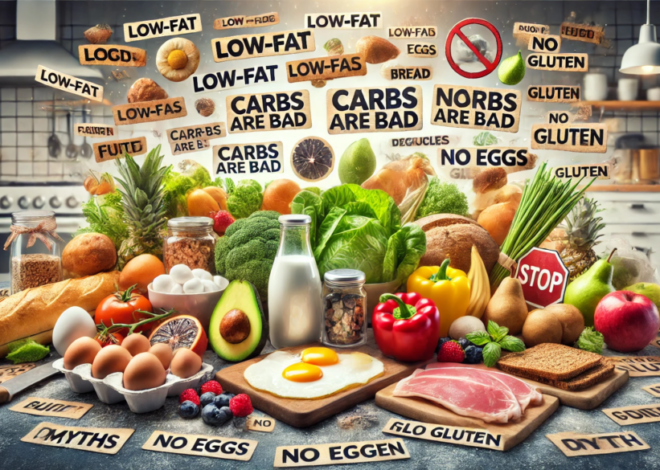
The Importance of Carbohydrates in a Balanced Diet
Carbohydrates are essential macronutrients that provide energy and support various bodily functions. Did you know that they are the body’s primary energy source, fueling your brain and muscles for everyday activities? In a balanced diet, carbohydrates play a vital role in maintaining health by supplying glucose and supporting metabolic processes. This article will delve into why carbohydrates are crucial, how they contribute to overall well-being, and the importance of choosing the right types of carbs. Understanding their role can lead to more informed dietary choices and a healthier lifestyle, making it essential to grasp their significance.
Understanding the Role of Carbohydrates in Nutrition
Carbohydrates are often misunderstood yet play a vital role in our daily nutrition. They are a primary energy source and essential for various bodily functions. Let’s delve into the world of carbohydrates, discover their types, and understand their importance beyond just energy production.
What Are Carbohydrates and Their Different Types?
Carbohydrates are organic compounds composed of carbon, hydrogen, and oxygen. They are one of the three macronutrients, alongside proteins and fats. Carbohydrates are found in a variety of foods and can be classified into three main types:
- Sugars: Simple carbohydrates that are easily digestible. Found in fruits, milk, and sweetened foods.
- Starches: Complex carbohydrates present in grains, legumes, and tubers. They require more time to break down.
- Fiber: Non-digestible parts of plant foods. Fiber aids in digestion and is crucial for gut health.
A balanced intake of these carbohydrates ensures a steady energy supply and supports various bodily functions.
Simple vs. Complex Carbohydrates: What’s the Difference?
Understanding the distinction between simple and complex carbohydrates is key to making informed dietary choices. Simple carbohydrates consist of one or two sugar molecules. They provide quick energy but can lead to spikes in blood sugar.
Conversely, complex carbohydrates have longer chains of sugar molecules. They are found in whole grains, legumes, and vegetables. These carbs take longer to break down, offering sustained energy and keeping hunger at bay for longer periods.
Opting for complex carbohydrates can contribute to better overall health by offering more nutrients and providing lasting energy.
Carbohydrate Function: Energy Production and Beyond
Carbohydrates are the body’s preferred energy source. When consumed, they convert into glucose, which fuels cells, tissues, and organs. However, their function extends beyond energy.
- They play a role in preserving muscle mass during intense workouts.
- Carbohydrates are vital for brain function, ensuring mental clarity and focus.
- They aid in fat metabolism and prevent the body from using protein as an energy source.
Thus, carbohydrates are indispensable not only for energy but also for maintaining overall physiological balance.
Health Benefits of Carbohydrates for the Body
Carbohydrates are often misunderstood, yet they offer numerous health benefits. Beyond providing energy, they are crucial for brain health, heart wellness, and weight management. Let’s explore how these nutrients support different bodily functions and debunk common myths surrounding them.
How Carbohydrates Support Brain Function
The brain relies heavily on glucose, a simple sugar derived from carbohydrates, for its energy. This makes carbohydrates essential for optimal brain function. A steady supply of glucose supports memory, learning, and concentration.
Low carbohydrate intake can lead to brain fog and decreased cognitive performance. Incorporating adequate carbohydrates into your diet helps maintain mental clarity and sharpness throughout the day.
Additionally, complex carbohydrates with a low glycemic index provide a gradual energy release, preventing energy crashes and keeping you alert and focused.
The Role of Carbohydrates in Heart Health
Carbohydrates play an integral role in maintaining heart health. Fiber-rich carbohydrates, in particular, help lower cholesterol levels. They reduce the risk of cardiovascular diseases by improving overall cholesterol profiles.
Including whole grains, fruits, and vegetables in your diet can aid in reducing blood pressure and inflammation. These foods are rich in antioxidants, contributing to better heart health.
It’s important to choose the right types of carbohydrates. Avoid refined and sugary carbs, which can contribute to heart disease. Opt for whole, unprocessed carbohydrates for a healthier heart.
Carbohydrates and Weight Management: Myths vs. Facts
Carbohydrates often get a bad rap when it comes to weight management. However, not all carbs are created equal. The key is understanding which carbohydrates to include in your diet.
Complex carbohydrates, such as those found in whole grains, provide satiety and prevent overeating. They also offer essential nutrients, contributing to a balanced diet.
Contrary to popular belief, eliminating carbohydrates completely is not necessary for weight loss. Moderation and choosing the right types of carbs are crucial for maintaining a healthy weight.
Dispelling myths about carbohydrates can lead to better dietary choices and effective weight management.
Incorporating Carbohydrates into a Balanced Diet
Incorporating carbohydrates into your diet doesn’t mean compromising on nutrition. It involves selecting the right types, balancing them with other macronutrients, and planning meals effectively. This section will guide you on how to incorporate carbohydrates for optimal health and complete nutrition.
Choosing Healthy Carbohydrate Sources
When it comes to carbs, quality matters. Opt for whole, minimally processed sources that are rich in fiber and nutrients. Here are some excellent choices:
- Whole grains: Brown rice, quinoa, and oats are nutrient-dense options.
- Fruits: Berries, apples, and bananas offer natural sugars and fiber.
- Vegetables: Leafy greens, carrots, and sweet potatoes are low in calories but high in nutrients.
- Legumes: Beans, lentils, and chickpeas provide protein and fiber.
Incorporating these sources into your meals ensures you get the most health benefits from carbohydrates.
Meal Planning with Carbohydrates for Optimal Health
Effective meal planning involves strategically including carbohydrates to meet energy needs and nutritional goals. Here’s how you can do it:
- Start your day with a balanced breakfast that includes whole grains like oatmeal or whole-grain toast.
- Incorporate a mix of protein and carbohydrates for lunch, such as a quinoa salad with beans.
- Choose snacks that combine carbohydrates and protein, like an apple with almond butter.
- Opt for a dinner that includes a serving of whole grains or starchy vegetables, paired with lean protein.
Planning meals in this way can help maintain energy levels and support overall health.
Balancing Carbohydrates with Proteins and Fats for Complete Nutrition
A balanced diet involves more than just carbohydrates. It’s about integrating them with proteins and fats for complete nutrition. Here’s why balance is important:
- Proteins are vital for muscle repair and immune function.
- Healthy fats are crucial for hormone production and brain health.
- Carbohydrates provide the energy needed to power these processes.
By combining these macronutrients, you ensure your body functions optimally. A typical balanced meal might include grilled chicken (protein), a quinoa salad (carbohydrate), and a drizzle of olive oil (healthy fat).
This synergy between macronutrients supports overall health and well-being.
Conclusion
Carbohydrates are a primary energy source for the body, essential for physical activity and brain function. They are crucial for maintaining optimal blood sugar levels and providing dietary fiber, which aids in digestion. Balanced carbohydrate intake helps regulate metabolism and supports immune function. Sources of healthy carbohydrates include whole grains, fruits, and vegetables. Excessive consumption of refined carbohydrates can lead to health issues like obesity and diabetes.
FAQ
What are the main functions of carbohydrates in the body?
Carbohydrates serve as the body’s primary energy source. They fuel the brain, nervous system, and muscles. Carbs also help with digestion and waste elimination, supporting overall health.
How do carbohydrates impact energy levels and physical performance?
Carbohydrates provide quick and sustained energy, essential for peak physical performance. They replenish glycogen stores in muscles, enhancing endurance and reducing fatigue during workouts.
What are healthy sources of carbohydrates for weight management?
Whole grains, fruits, vegetables, and legumes are excellent carbohydrate sources for weight management. These options are rich in fiber, promote fullness, and help regulate blood sugar levels.
How do carbohydrates influence brain function and mental health?
Carbohydrates are crucial for brain function. They provide glucose, the brain’s preferred energy source. A steady supply supports cognitive functions, concentration, and mood stabilization.
How can a balanced carbohydrate intake support digestive health?
Carbohydrates, especially fiber-rich ones, promote healthy digestion. They aid in regular bowel movements and nourish beneficial gut bacteria, improving overall digestive health.
What is the role of carbohydrates in a balanced diet for athletes?
Athletes rely on carbohydrates for energy and recovery. Consuming carbs before, during, and after exercise optimizes performance and aids in muscle glycogen restoration.











